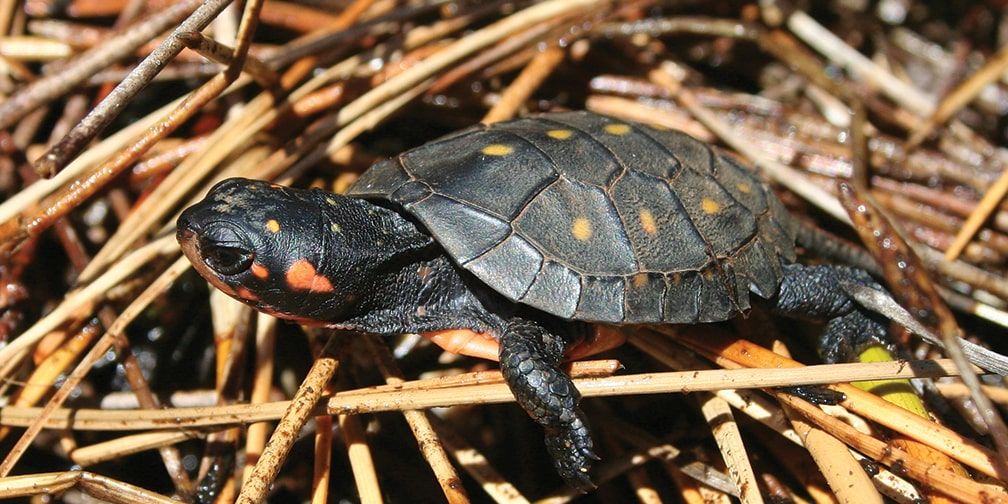Ontario Nature Blog
Receive email alerts about breaking conservation
and environmental news.
© Lora Denis
I spent my summers catching frogs with my sister on a small lake in Seguin, Ontario. We did other things too – like swim to the jumping rock and canoe to the island for overnight camping adventures. In the winters we skiied on the lake, marvelling at the giant icicles that formed on the rock faces.
I remember the lake teaming with life. Spring peepers announced that summer was almost upon us, crickets kept us up on those humid August nights, and the loons let us know that another day was over with their haunting calls. The sounds of nature were part of our days and nights but it’s become noticeably quieter over the years.

The United Nations just released a report on the state of biodiversity. The report lays bare the scale of loss of nature and the decline of our ecosystem services. Its conclusions are nothing short of devastating.
The report is full of sobering statistics.
Some 450 scientists from over 50 countries agree that nature’s decline over the past 50 years is ‘unprecedented’ in human history, and list 1 million species at risk of extinction. Natural ecosystems have declined by 47%. 85% of our wetlands have been lost and more than 40% of amphibian species are threatened.

Human activity has significantly altered 75% of our terrestrial environment and 66% of our marine environment. We have consumed our earth to the point of collapse.
A government that is ‘open for business’ would do well to heed this report. Says the Chair, Sir. Robert Watson, “We are eroding the very foundations of our economies, livelihoods, food security, health, and quality of life worldwide.” And yet our provincial government has proposed a drastic overhaul to Ontario’s Endangered Species Act. Despite their claims to the contrary, these changes will gut the already weakened protections for Ontario’s most vulnerable plants and animals, giving industry and developers free reign to destroy habitat.
The report suggests that only through ‘transformative change’ can nature be recovered. That we need to remove the subsidies and incentives that are given to the energy, industrial agricultural, fishing and forestry sectors, and invest instead in protecting and restoring nature.
The report also found that nature managed by Indigenous Peoples is declining less rapidly. We need to engage with Indigenous communities, learn from their systems of traditional knowledge and experience of being good stewards of the land.

I’m encouraged by the next generation of youth who are leading the charge for the positive change we need. Youth like members of Ontario Nature’s Youth Council who are leading conservation initiatives in their communities and who are deeply committed to living in more sustainable ways. Inspirational rebels like Greta Thunberg, who has ignited a movement that demands actions to reverse the climate crisis we’ve created.
I also believe that we need to support a robust and independent third sector. Charities, community organisations and not-for-profits that provide vital research, sound the alarm and rally local action when our government drops the ball on the things that we love and don’t want to lose.
We still have time to act but it’s got to be swift. As Greta says, “I want you to act as you would in a crisis. I want you to act as if our house is on fire. Because it is.”

Proposed 413 Route, Old School Road with farm and escarpment view © Noah Cole
It is all about the economy, root of all evil, money rules. All else is not important.
We need to develop and strengthen Environmental protection acts in Ontario. Nature is of vital importance to human existence.